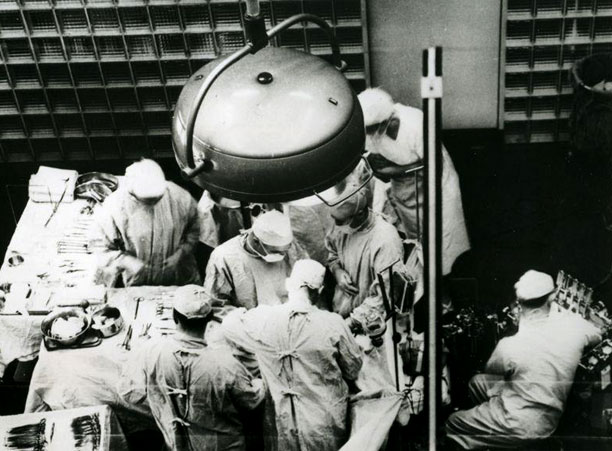Dr. Joseph E. Murray ’40 P80, who ushered in a new era of medicine with the first successful organ transplant, died on Nov. 26 in Boston. He was 93.
On Dec. 23, 1954, Murray performed the world's first organ transplant when he removed a kidney from a healthy 23-year-old man and implanted it into his twin brother who was suffering from kidney disease. Murray’s subsequent research advanced doctors’ ability to prevent transplant rejection, and in 1990 he was honored for his pioneering medical work with the Nobel Prize in Physiology or Medicine.
A loyal and dedicated alumnus, Murray had many ties to Holy Cross. During his visit for the official opening of the $64 million science complex in 2010, Murray commented on the value of his liberal arts degree.
"Holy Cross gave me a very liberal education — a broad view of living — and that's why I majored in a bachelor of arts, rather than a bachelor of science," he said. "The courses I took in English, history, philosophy, Latin and Greek have stayed with me for the past 60 odd years. And I still remember my English professor, my physics professor, and we learned, I think, the value of living."
In 1965, he received an honorary Doctor of Science degree from the College. In 1991, the College held a symposium on medicine in his honor where he received a crystal statue of a shooting star, symbolic of how Murray kept his eye on a distant star for years as he developed the methodology for organ transplants.
The distinguished lectureship in medicine at the College is named in honor of Murray. Designed to highlight Holy Cross’ history of producing world-renowned leaders in health care, the Murray Lectureship celebrates the lifetime achievement of a Holy Cross graduate who is at the pinnacle of a career as physician or medical research scientist. Anthony S. Fauci, M.D., ’62, director of the National Institute of Allergy and Infectious Diseases (NIAID) at the National Institutes of Health, delivered the inaugural lecture in 2010.
Earlier this year, the editors of Holy Cross Magazine named Murray's Nobel Prize win among the top 25 moments in the College's history.
Media Coverage
- Associated Press (via the Los Angeles Times), Nov. 26 "Nobel winner Joseph Murray dies; performed first successful kidney transplant"
- The Boston Globe, Nov. 27 "Organ transplant pioneer Joseph Murray dies at 93"
- Telegram & Gazette, Nov. 27 "Pioneering Mass. transplant doctor Murray dies, was Holy Cross graduate"
- The New York Times, Nov. 27 "Joseph E. Murray, Transplant Doctor and Nobel Prize Winner, Dies at 93"
- Reuters (via MSNBC.com), Nov. 27 "Nobel winner and organ transplant pioneer Joseph Murray dies at 93"
- NPR, Nov. 27 "Hope, Innovation: Remembering A Transplant Pioneer"
Related Information
- Celebrating Science[gallery orderby="title"]



